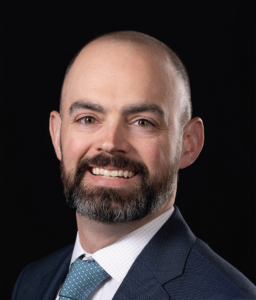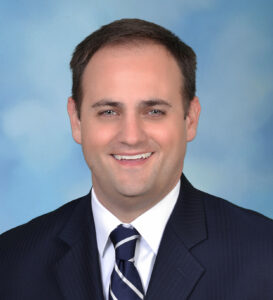Day 1 — Tuesday, May 9
REGISTRATION & BADGE PICKUP
DEEP DIVE — A Practical Guide for Implementing ML in EHRs


In this deep dive, we will address common social and technical challenges faced by health systems in evaluating and implementing machine learning based clinical workflows within electronic health records. We will discuss social issues related to governance, selection and evaluation of models, vendor vs. researcher-based models, and regulatory questions. On the technical side, we will discuss issues related to database structures, technical standards, vendor-specific model formats, application programming interfaces, and model monitoring. We will end with a guide on how to get started presented from a health systems perspective, with concrete examples drawing from our experience in sepsis and clinical deterioration.
WELCOME RECEPTION & REGISTRATION
Rum tasting with Nativo Rumeliers
Day 2 — Wednesday, May 10
BREAKFAST & LATE REGISTRATION
OPENING REMARKS
PANEL 1 — Surgical AI


Professor, Surgery in Residence, University of California Davis

President & Board Chair, AMIA

AI is being used to make new tools that improve surgeons’ clinical practice and health-care outcomes. In our “Surgical AI” panel, we learn about the emerging tech that is revolutionizing the operating room.
Also join our Surgical AI Breakout Chat during this evening’s dinner to continue the discussion!
INVITED TALK 1 — Human-Centered Design for the Practical Deployment of AI in Pediatric Healthcare

With the recent advances in robotics and artificial intelligence (AI), early intervention protocols using robots is now ideally positioned to make an impact in the pediatric healthcare domain. There are numerous challenges though that still must be addressed to enable successful interaction between patients, clinicians, and robots—developing interfaces for clinicians to communicate with their AI counterparts; developing learning methods to endow robots with the ability to playfully interact with the child; and ensuring that the system can provide feedback to the parent and clinician in a trustworthy manner. In this presentation, I will discuss the role of human-centered design for the practical deployment of AI, with an emphasis on pediatric robotics that can enable a healthier, less stressful quality of life, now and in the future.
SPOTLIGHT TALK 1 — Has machine learning made a difference yet? A retrospective analysis of in-hospital mortality prediction

SPOTLIGHT TALK 2 — Deployment and implementation of a multi-service surgical case length prediction model

SPOTLIGHT TALK 3 — Fostering the translation of AI to the clinic by building a physiological data streaming system

LUNCH
OPENING KEYNOTE — The Emergence of General AI for Medicine

Large language models, such as GPT-3.5 and later more powerful ones, have emerged as powerful new tools for information work, particularly when coupled with chat interfaces as in ChatGPT. These systems are demonstrating impressive capabilities across many domains, and they have the potential to improve health-care delivery and accelerate medical science. In this talk, we will present the results of our intensive year-long study exploring the benefits and risks of applying these systems in medicine. Our findings indicate that these systems may be the most significant technological advance in health care and medicine to date, despite receiving no specialized training in the field. We will showcase examples of how general AI can be used in health care and medicine, and then discuss the implications for the future as these systems continue to evolve, becoming increasingly more intelligent and capable.
INVITED TALK 2 — Inpatient and Outpatient Clinical Translation of AI

I will discuss the clinical translation of AI in medicine and its impact on design, evaluation, and integration decisions, and we will review insights from studies at NYU Langone involving inpatient setting (COVID-19), and outpatient setting (Dementia) with Imaging and EHR data.
BREAK
PANEL 2 — Tales from the Trenches





So you’ve designed an AI system to improve healthcare, but what will happen when you deploy it in the clinic? In our “Tales from the Trenches” panel, we explore the successes and pitfalls our panelists have experienced firsthand. Join us at SAIL 2023 to be part of the discussion.
POSTER SESSION
- 4:30–5:15 pm Odd numbered posters
- 5:15–6:00 pm Even numbered posters
DINNER BANQUET — Puerto Rican Beachside Dinner
BREAKOUT — Surgical AI Chat
Grab a drink and join us for an informal roundtable discussion about the future of this field.
Day 3 — Thursday, May 11
BREAKFAST
INVITED TALK 3 — COVID-19 Screening of Immigrants in Greece

In close collaboration with the Greek government, my co-authors and I deployed a novel reinforcement learning algorithm to allocate a limited number of COVID-19 tests to travelers visiting Greece, with the goal of identifying infected travelers to safeguard public health. Our algorithm processed millions of travelers in 2020 and identified nearly twice as many infections as commonly-employed random testing.
INVITED TALK 4 — OpenMRS EHR Systems in Kenya to Improve HIV Care


Ann Mwangi and Joseph Hogan will describe development, application, and implementation of machine learning algorithms for improving patient care in a large HIV care program in western Kenya. A key feature of this project is deep collaboration between statisticians (develop the algorithms), behavioral scientists (assess usability among end users), clinicians (prioritize endpoints), and informatics experts (implementation in an EHR). Implementation will be in OpenMRS, and the effectiveness of the ML-based decision support system will be evaluated using a randomized trial of 30 clinics serving around 150,000 patients.
BREAK
FIRESIDE CHAT — Implementation: Who Gets Stuff Done?



Informatics leaders at healthcare systems across the country are implementing and overseeing AI solutions at the bedside and across the enterprise. They struggle to balance the opportunity with the costs and risks of AI. This panel will discuss the potential and practical implementation of AI within healthcare systems.
LUNCH
SPOTLIGHT TALK 4 — Improving dermatology classifiers across populations using images generated by large diffusion models

SPOTLIGHT TALK 5 — Multimodal image–text matching improves retrieval-based chest x-ray report generation

FIRESIDE CHAT — Who Drives Investment?




Healthcare investing has seen a transformation, with hospital systems and traditional technology companies joining the field. Novel forms of joint venture and collaboration have grown out of an appreciation of the unique character of healthcare. Join us for a fascinating discussion with investors who represent these new models of healthcare investing.
BREAK
PANEL 3 — Large Language Models


Editor-in-Chief, NEJM AI


Where are LLMs going to have the most beneficial impact upon the practice of medicine?
BREAK
GROUND TRANSFER TO THE RAINFOREST
Shuttle departs at 5:30 PM sharp!
DRINKS & DINNER IN THE RAINFOREST
The only tropical rainforest in the US, El Yunque spans 28,000 acres and is home to more than 240 types of trees, birds, native species like the coquí frog, and includes 25 waterfalls, several rivers and ancient petroglyphs of the indigenous Taíno.
GROUND TRANSFER BACK TO THE HYATT
Day 4 — Friday, May 12
BREAKFAST
INVITED TALK 5 — Apple Heart Study and REACT-AFib

I will be focusing on the road that lies ahead, beyond the Apple Heart Study, in the digital health and wearable device space. We’ll chat about the REACT-AF study and how work on deep learning with 12-lead ECGs could translate to the wearable ECG domain.
PANEL 4 — AI in Clinical Trials




Clinical trials aren’t just for drugs or devices anymore! In this panel, we hear from investigators on trials that evaluate the real-world impact of AI-based technologies on human health. Join us at SAIL 2023 for this engaging discussion about the future of clinical research.
MINI BREAK
This very brief break is to allow the Keynote Speaker to get to the podium and the AV team to start the live stream. Please be settled back in your seats well in advance of the 11:15 AM Closing Keynote start time.
CLOSING KEYNOTE — Open-Source Algorithms in Type 1 Diabetes: Achievements and Challenges from a Patient Perspective

I will be talking about the power of the diabetes online community in the improvement of diabetes care through the example of open-source automated insulin delivery algorithms. I’ll introduce open-source automated insulin delivery systems and discuss their legal, technical, scientific and psychological challenges. Eventually, diabetes technology is full of paradoxes: it is essential yet not accessible to everybody, helpful yet it brings new mental burdens, it increases our life expectancy yet it is not a cure to diabetes.

